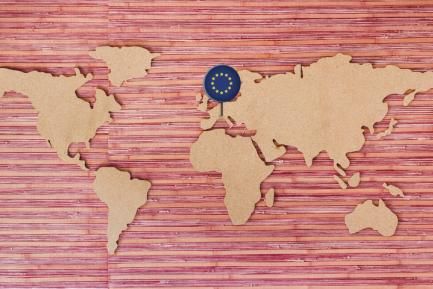Geopolitical uncertainty and economic growth: the indirect impact of the Ukraine conflict in Spain
When there is an increase in uncertainty, households and businesses tend to postpone consumption and investment decisions, which ends up affecting the pace of economic activity. In this article, we attempt to estimate the impact of uncertainty on Spain’s economic growth.

The conflict between Russia and Ukraine is affecting our economy in many ways. One of them, which we already addressed in another article, is the impact of rising energy prices.1 Another channel also worth examining is the increase in uncertainty, because in such a situation, households and businesses tend to postpone consumption and investment decisions, which ends up affecting the pace of economic activity. In this article, we attempt to shed some light on this issue.
Uncertainty is a concept that is very difficult to measure. That said, in recent years a number of indices have been developed which give us an idea of how it is evolving practically in real time. For instance, according to the geopolitical risk index developed by Iacovello and Caldara, since the outbreak of the conflict uncertainty has increased substantially, as shown in the first chart.2 Indeed, this daily index reveals that since the start of the Russian invasion geopolitical risk has risen to levels not seen since the outbreak of the Iraq War in March 2003, although it still lies 30% below the level of that time.

Another index that also faithfully captures the evolution of the degree of uncertainty is the European Political Uncertainty (EPU) index produced by Baker, Bloom and Davis.3 As can be seen in the second chart, the EPU index has a close relationship with Spain’s economic activity data: the higher the uncertainty index, the lower GDP growth tends to be. As an example, a rise in the uncertainty index like that which occurred following the failure of Lehman Brothers in 2008 was accompanied by a 1.6-point reduction in year-on-year growth in the quarter in question.
- 3. This index reflects uncertainty in Europe as measured by the relative frequency of news and newspaper articles containing terms related to the economy, uncertainty, politics and public policy. We plotted the rise in the EPU index against the rise in geopolitical risk in order to see to what extent it has a knock-on effect on uncertainty in Europe. Historically, a 100-point increase in the geopolitical risk index translates into a 25-point increase in the EPU index. Using this relationship, we calculate how the EPU index would be affected by the upturn in the geopolitical risk index following the outbreak of the war in Ukraine.

The indices mentioned help us to gauge the current level of uncertainty, as well as its relationship with economic activity. However, increases in uncertainty tend to be accompanied by other phenomena which also affect economic activity. To what extent can a rise in uncertainty reduce economic activity growth? In order to better identify the direct impact of uncertainty, we use a statistical technique4 which allows us to quantify the impact on the Spanish economy over time of an uncertainty shock with external origins. In this case, the estimates suggest that an uncertainty shock such as the one observed to date due to the war in Ukraine could result in a 0.6-pp slowdown in year-on-year GDP growth in Q2 2022.
Thus, the rise in uncertainty that is currently occurring could have a significant impact on economic activity. Whether or not this ends up happening will depend, above all, on how the conflict develops, and this is very difficult to foresee. However, it will also depend on the speed and effectiveness of the economic policy measures that are put in place.
On the one hand, the ECB has already made it clear that it will adapt its course of action according to the circumstances and, therefore, that it is ready to adjust the various tools which it has at its disposal if necessary. From the point of view of fiscal policy, it is important that any action taken is swift and effective, helping the groups and sectors that are hardest hit by the crisis and creating a framework of confidence for the economy as a whole.
- 4. The technique in question is a vector autoregressive (VAR) model. See details in the notes of the third chart.

Our model captures an erosion of economic growth due to the impact of the uncertainty shock on consumers, businesses and the financial markets. In this exercise, we assume that the financial variables are first affected by the shock, and that this shock is then also transmitted to the macroeconomic variables of the real economy. On the one hand, when analysing the impact of an uncertainty shock consistent with the rise in the geopolitical risk index that was observed following the start of the Russian offensive, the risk premium shows an increase in the short term, while consumer confidence is eroded. In this context, investment growth contracts (by approximately 1.2 pps in year-on-year terms), as some companies postpone their investment plans until they have greater visibility.
The impact of this uncertainty shock on the average growth of 2022 in Spain could lead to a reduction of 0.2 pps.5 That said, this is assuming that the conflict will be de-escalated in the coming months and that we will not experience the same degree of uncertainty in the second half of the year. If the conflict were to draw out for longer, the toll on growth would be greater.
- 5. This impact is similar to that which we obtain using the CaixaBank Research semi-structural model for the Spanish economy (see «Modelo semiestructural de CaixaBank Research para España», Working Paper 01/21, content available in Spanish). According to this model, the reduction in GDP growth resulting from the uncertainty effect would amount to 0.3 pps when we consider a scenario in which the conflict is de-escalated within a few months.



